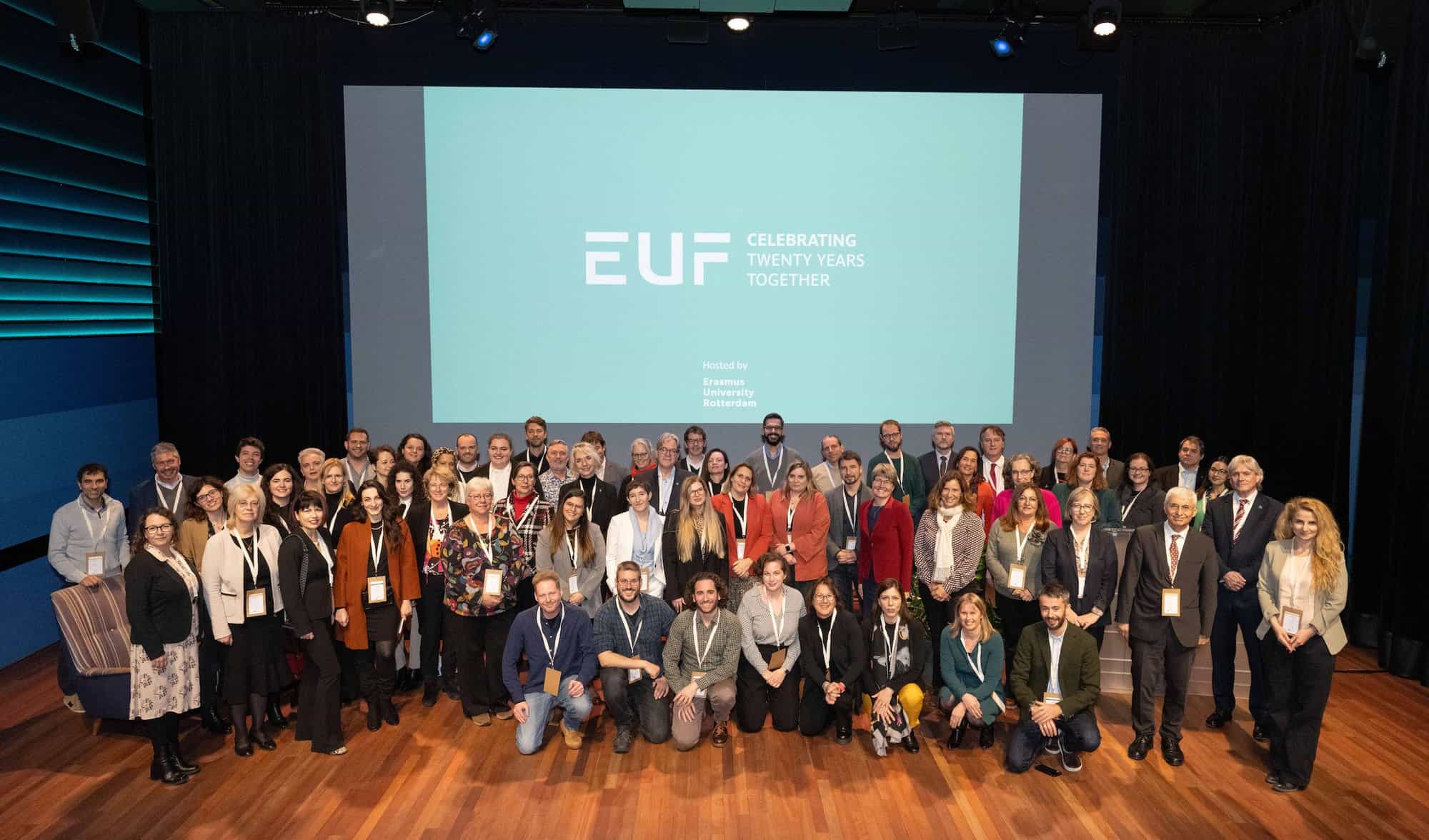We have come a long way and have many challenges ahead
At the end of November, we celebrated the 20-year journey of the European University Foundation (EUF) and its achievements together with more than 80 Rectors, Vice-Rectors and Coordinators of our member institutions at Erasmus University Rotterdam.
The anniversary celebrations gave us an excellent opportunity to reflect on how far we have come together. This was the topic of an inspiring panel that looked back at some of the challenges we have set ourselves over the years and the systemic impact of our joint work. We talked a lot about the importance of high quality mobility, of the unfulfilled potential internationalisation has to offer and even how current political developments across Europe might affect or curtail such activities.
While the first panel discussion highlighted the main achievements of the network over the past 20 years, the second roundtable focused on the challenges and opportunities for the next decade. Higher education institutions have a major role and responsibility in ensuring Europe’s stability and shaping our common future. In the era of a divided Europe, it was a giant step when the Erasmus programme finally created a common space for universities, and it is heartening to know how much the EUF has played a part in this.
An essential feature of the EUF’s work is that in addition to the cooperation of institutions of different characters, there is also continuous communication with students about their vision of the kind of Europe they want to live in – highlighted Prof. Marketa Krizova, EUF President, in her speech.
As more and more students have become mobile, then and now, it is changing the landscape and the whole of Europe. More open people are building a better Europe.
The initiatives implemented by the network have shaped policy, as well as provided bottom-up support for the implementation of the Erasmus programme.
Speaking of digitalisation, we can be proud that many digital solutions that were once firmly in the realm of science fiction have become a reality over the last 10 years. The work on this front is far from finished. We are clearly taking, but the first steps towards a more data-driven approach to internationalisation strategies and activities. And yet more and more attention needs to be paid to ensuring that inclusion and broader participation in mobility does not remain a dream and that mobility periods for all students become a reality.
Universities must be guardians of quality. They are responsible for training and preparing the next generation of decision-makers, scientists and professionals. In fact, their primary responsibility is to educate their own successors. Mobility is essential to give students a new perspective and enable them to look at the world in a new light. Learning together is part of European cohesion. It also includes intergenerational learning, taking into account senior learners in an ageing society, which is one of the most significant challenges of the near future.
The EUF network remains committed to continuing its mission and taking further initiatives in response to emerging demands and policy needs. “What we do here is very practical, but at the same time always driven by a strong vision” – was concluded in the closing remarks.

